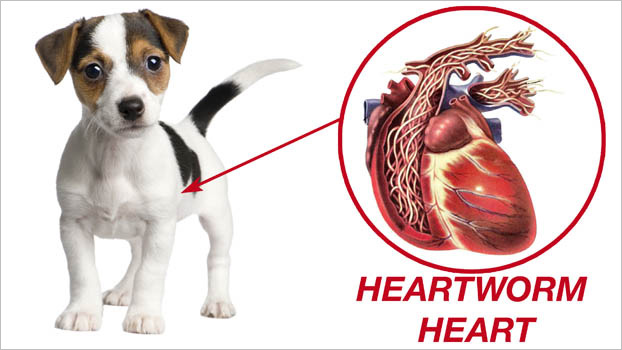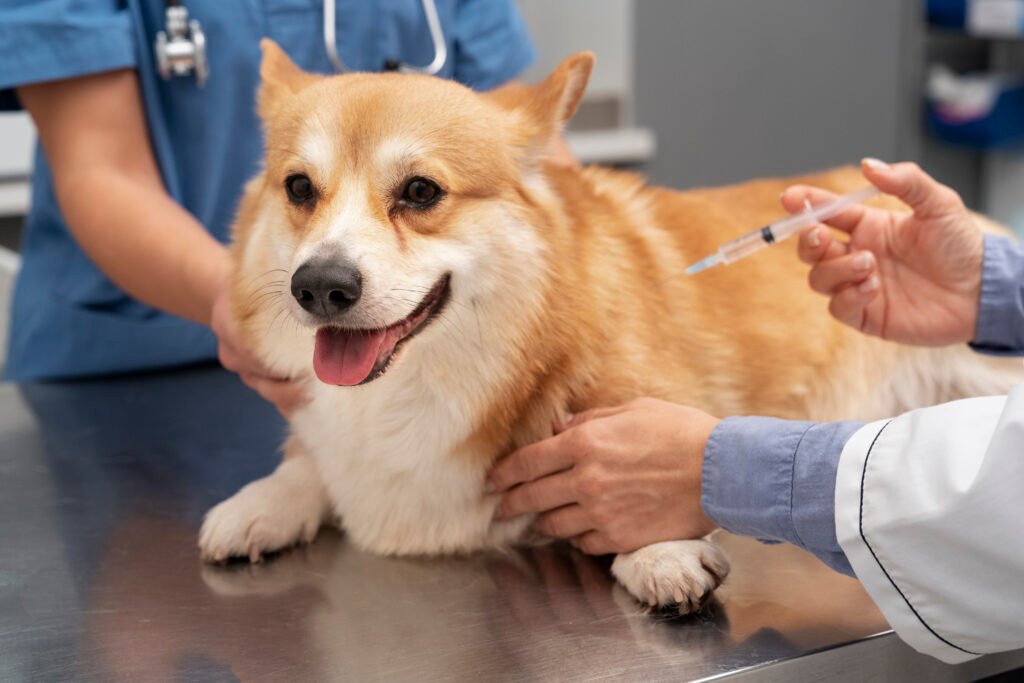
Heartworm disease in dogs is one of the most serious and potentially fatal conditions that pet owners must be aware of. Spread by mosquitoes, this parasitic infection can lead to heart failure, lung damage, and organ complications if not treated in time. While some areas in the USA have a higher incidence of heartworm, the risk exists everywhere, making prevention and regular testing essential.
In this article, we’ll dive deep into the causes, symptoms, treatment options, and safe prevention strategies for heartworm disease in dogs.
What is Heartworm Disease in Dogs?
Heartworm disease is caused by a parasite called Dirofilaria immitis. These worms live inside a dog’s heart, lungs, and associated blood vessels, leading to serious health problems.
The disease spreads when:
A mosquito bites an infected dog and picks up microscopic larvae.
The larvae mature inside the mosquito for about two weeks.
The mosquito then transmits the larvae into another dog through a bite.
Over the next 6–9 months, the larvae grow into adult worms that can reach up to 12 inches long.
Symptoms of Heartworm Disease in Dogs
Early stages of heartworm disease in dogs often show no signs, making testing critical. As the infection progresses, symptoms may include:
Persistent cough
Fatigue after mild activity
Loss of appetite
Weight loss
Difficulty breathing
Signs of heart, liver, or kidney failure in advanced cases
Cats can also get heartworms, but they are less common and harder to treat.
Testing for Heartworm Disease
Even if your dog is on preventative medication, testing is essential at least once a year. In high-risk areas (warm, humid, mosquito-heavy regions), testing every 6 months may be recommended.
Common tests include:
Antigen tests to detect adult worms
Bloodwork (4DX or Accuplex tests) that check for heartworms and tick-borne diseases
Treatment Options for Heartworm Disease in Dogs
If your dog tests positive, treatment depends on the severity of infection. The two most common approaches are:
1. Slow-Kill Method
Uses monthly preventatives combined with antibiotics (like doxycycline).
Gradually kills off heartworms over 9–12 months.
Lower risk of complications but requires patience.
2. Fast-Kill Method
Involves deep muscle injections to quickly kill adult worms.
Works faster but carries higher risks, as dead worms can cause dangerous blockages in blood vessels.
Dogs must remain calm and have restricted activity for several months to prevent complications like embolism.
Preventing Heartworm Disease in Dogs
Prevention is always safer and easier than treatment. Options include:
Monthly Preventatives: Such as milbemycin oxime (Interceptor) or ivermectin (Heartgard).
Avoid Risky Drugs: Some preventatives like Trifexis and ProHeart injections have been linked to side effects, including seizures and liver damage.
Lifestyle Protection:
Keep dogs indoors during peak mosquito activity.
Use fans or repellents in outdoor areas.
Maintain a strong immune system with proper diet and care.
Some natural supplements like HWF (Heartworm Free) are marketed as immune-supportive, but they lack strong scientific backing compared to standard preventatives.
Final Thoughts
Heartworm disease in dogs is a serious but preventable condition. With regular testing, safe preventative measures, and the right veterinary guidance, you can protect your dog from this life-threatening illness.
Every dog’s lifestyle and environment are different, so prevention strategies should be tailored to your pet’s needs. Talk to your vet about the safest option for your area, and stay proactive in keeping your dog heartworm-free.
Related Disease to Watch: Parvovirus in Dogs
While heartworm disease in dogs is a major concern, canine parvovirus (parvo) is another serious illness every dog owner should know about. Parvo is a highly contagious viral infection that primarily affects puppies and unvaccinated dogs. It attacks the gastrointestinal system, causing severe vomiting, diarrhea (often bloody), dehydration, and, if untreated, can be fatal.
The good news is that parvo is preventable through proper vaccination. If you’d like to learn more, check out our full guide on Parvovirus in Dogs
Pravin is a tech enthusiast and Salesforce developer with deep expertise in AI, mobile gadgets, coding, and automotive technology. At Thoughtsverser, he shares practical insights and research-driven content on the latest tech and innovations shaping our world.
- Pravin Rhttps://thoughtsverse.com/author/pravin321/
- Pravin Rhttps://thoughtsverse.com/author/pravin321/
- Pravin Rhttps://thoughtsverse.com/author/pravin321/
- Pravin Rhttps://thoughtsverse.com/author/pravin321/



